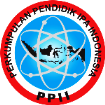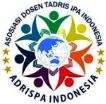Science, Technology, Engineering and Mathematic (STEM) Education in Malaysia: Preparing the Pre-service Science Teachers
Abstract
Full Text:
PDFReferences
Augustine, N. R. (2005). Rising Above the Gathering Storm: Energizing and Employing America for a Brighter Economic Future. Washington, DC: The National Academies Press.
Beatty, A. (2011). Successful STEM education. Washington, DC: National Academies Press.
Breiner, J. M., Harkness, S. S., Johnson, C. C., & Koehler, C. M. (2012). What is STEM? A discussion about conceptions of STEM in education and partnerships. School Science and Mathematics, 112(1), 3-11.
Bybee, R. W., Taylor, J. A., Gardner, A., Van Scotter, P., Powell, J. C., Westbrook, A., & Landes, N. (2006). The BSCS 5E instructional model: Origins and effectiveness. Colorado Springs, Co: BSCS, 5, 88-98.
Bybee, R. W. (2010). Advancing STEM Education: A 2020 Vision.Technology and Engineering Teacher, 70(1), 30-35.
Bybee, R. W. (2013). The case for STEM education: Challenges and opportunities. National Science Teachers Association. Carter, V. R. (2013).
Defining characteristics of an integrated STEM curriculum in K--12 education. University of Arkansas.
Chesky, N. Z., & Wolfmeyer, M. R. (2015). Philosophy of STEM Education: A Critical Investigation. Springer.
Eliot, C.W. et. al. (1892). Report of the Committee of Ten to the National Education Council. http://tmh.floonet.net/books/commoften/mainrpt.htm
Elliott, B., Oty, K., McArthur, J., & Clark, B. (2001). The effect of an interdisciplinary algebra/science course on students' problem-solving skills, critical thinking skills and attitudes towards mathematics. International Journal of Mathematical Education in Science and Technology, 32(6), 811-816.
Hibpshman, T. (2007). A Brief Review of the Preparation of Kentucky Mathematics and Science Teachers. http://kyepsb.ky.gov
Honey, M., Pearson, G., & Schweingruber, H. (Eds.). (2014). STEM integration in K-12 education: Status, prospects, and an agenda for research. National Academies Press.
Kammermeyer, C. (24 October 2016). Personal Conversation. MINT Education.
Kuenzi, J. J., Matthews, C. M., & Mangan, B. F. (2006). Science, technology, engineering, and mathematics (STEM) education issues and legislative options. Library of Congress Washington DC Congressional research service.
Ministry of Education (MOE). (2012). Malaysia Education Blueprint 2013-2025. Ministry of Education. Putrajaya.
Moore, T. J., Johnson, C. C., Peters-Burton, E. E., & Guzey, S. S. (2015). The need for a STEM road map. STEM road map: a framework for integrated STEM education.
Routledge, 1. Muhammad Syukri, (2 Januari, 2012). Pendidikan STEM dalam ‘Engineering is Elementary’, http://aceh.tribunnews.com/2012/01/02/pendidikan-stem-dalam-engineering-iselementary.
Narum, J. (2008). Transforming Undergraduate Programs in Science, Technology, Engineering, and Mathematics: Looking Back and Looking Ahead. Liberal Education, 94(2), 12-19.
National Science Foundation. (2012). STEM Education. Science and Engineering Indicators: 2012 Digest.
Next Generation Science Standards, NGSS Lead States. (2013).
Next generation science standards: For states, by states. National Academies Press.
OECD (2011), Education at a Glance 2011: OECD Indicators, OECD Publishing.
Ostler, E. (2012). 21st century STEM education: A tactical model for long-range success. International Journal of Applied Science and Technology, 2(1).
Partnership for 21st Century Learning (P21). (n.d.). Framework for 21st Century Learning.http://www.p21.org/our-work/p21-framework
President’s Council of Advisors on Science and Technology. (2010). Report To The President Prepare And Inspire: K-12 Education In Science, Technology, Engineering, And Math (Stem) For America’s Future. https://obamawhitehouse.archives.gov/sites/default/files/microsites/ostp/pcast -stem-ed-final.pdf
DOI: http://dx.doi.org/10.24014/jnsi.v1i2.6595
Refbacks
- There are currently no refbacks.

Journal of Natural Science and Integration
E-ISSN: 2620-5092 P-ISSN: 2620-4967
Published By:
Department of Science Education, Faculty of Education and Teacher Training,
State Islamic University of Sultan Syarif Kasim Riau, Indonesia
Mailing Address:
Jl. H.R Soebrantas Km. 15 No. 155
Kelurahan Simpang Baru
Kecamatan Tuah Madani, Pekanbaru, Riau, Indonesia
Email: jnsi.tadrisipa@uin-suska.ac.id
Indexed By:
Journal of Natural Science and Integration is licensed under a Creative Commons Attribution 4.0 International License.


_-_Copyy2.png)






.jpg)
.png)
.jpg)
.jpg)




